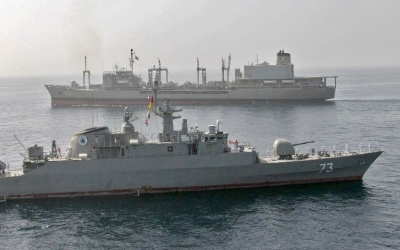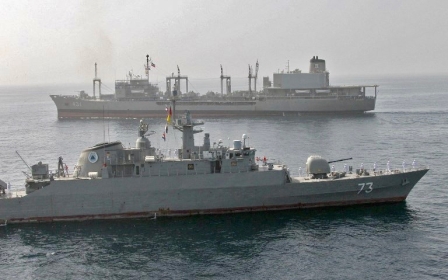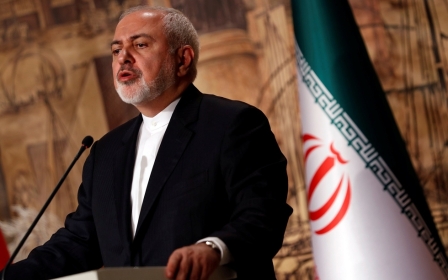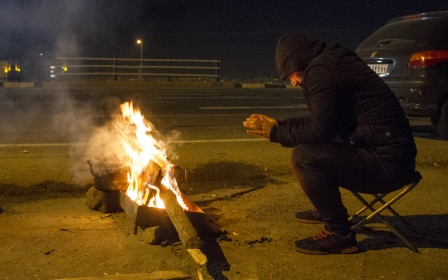Iran plans to strengthen ties with Hezbollah and Lebanon in spite of US pressure

Iran said on Sunday it would expand its ties with Hezbollah and Lebanon in spite of the "provocative and interventionist" call by US Secretary of State Mike Pompeo for Beirut to choose sides, Iranian state television reported.
On a regional tour to drum up support for Washington's harder line against Tehran, Pompeo said on Friday that Lebanon faced a choice, "Bravely move forward as an independent and proud nation, or allow the dark ambitions of Iran and Hezbollah to dictate your future."
Pompeo highlighted US concerns about Hezbollah's "destabilising activities" in Lebanon and the region in talks with Lebanese leaders, the Israeli website Hayom said.
Iranian Foreign Ministry spokesman Bahram Qasemi dismissed Pompeo's remarks, Reuters reported.
New MEE newsletter: Jerusalem Dispatch
Sign up to get the latest insights and analysis on Israel-Palestine, alongside Turkey Unpacked and other MEE newsletters
"Because of the failure of its policies in the Middle East, America has turned to the outdated and disgraced weapon of threats and intimidation to impose its imperious policies on other countries," Qasemi said, state television reported.
"While respecting the independence of Lebanon and the free will of its government and nation, Iran will use all its capacities to strengthen unity inside Lebanon and also to expand its ties with Lebanon."
Hezbollah, whose influence has expanded at home and in the region, controls three out of 30 ministries in the government led by Western-backed Prime Minister Saad al-Hariri, the largest number in its history.
Dominant Shia Muslim power Iran and Hezbollah, founded in 1982 by Iran's Revolutionary Guards, are major players in the war in Syria and the fight against militant groups opposed to President Bashar al-Assad, which include the Islamic State group.
Qasemi said that Lebanon's Hezbollah was a legal and popular party.
"How can Pompeo make such impudent and irrational remarks while visiting Lebanon," he said.
Tensions between Tehran and Washington have increased since US President Donald Trump pulled out of a 2015 nuclear deal between Iran and six world powers last May, and then reimposed sanctions on the Islamic Republic.
The US on Friday imposed additional sanctions on Iranian nuclear researchers, saying it wanted to warn young scientists to steer clear of any future effort to build a bomb, AFP reported.
Sanctioning 14 individuals and 17 entities, US officials acknowledged that the nuclear work was in the past but said Washington wanted to make the targeted figures "radioactive".
The restoration of sanctions is part of a wider effort by Trump to force Iran to further curb its nuclear programme and to end its ballistic missile work as well as its support for proxy forces in Yemen, Syria, Lebanon and other parts of the Middle East.
Middle East Eye delivers independent and unrivalled coverage and analysis of the Middle East, North Africa and beyond. To learn more about republishing this content and the associated fees, please fill out this form. More about MEE can be found here.





